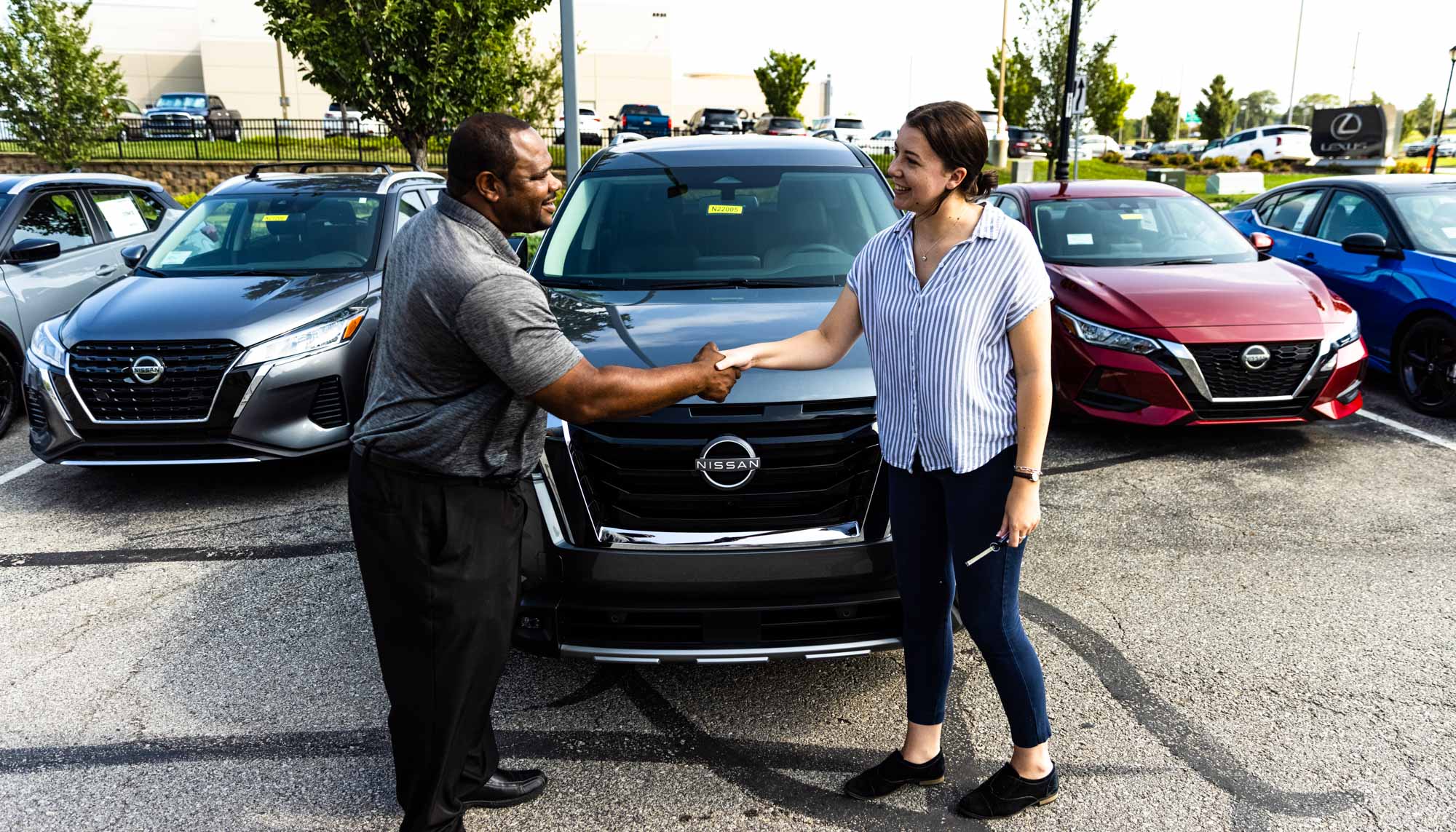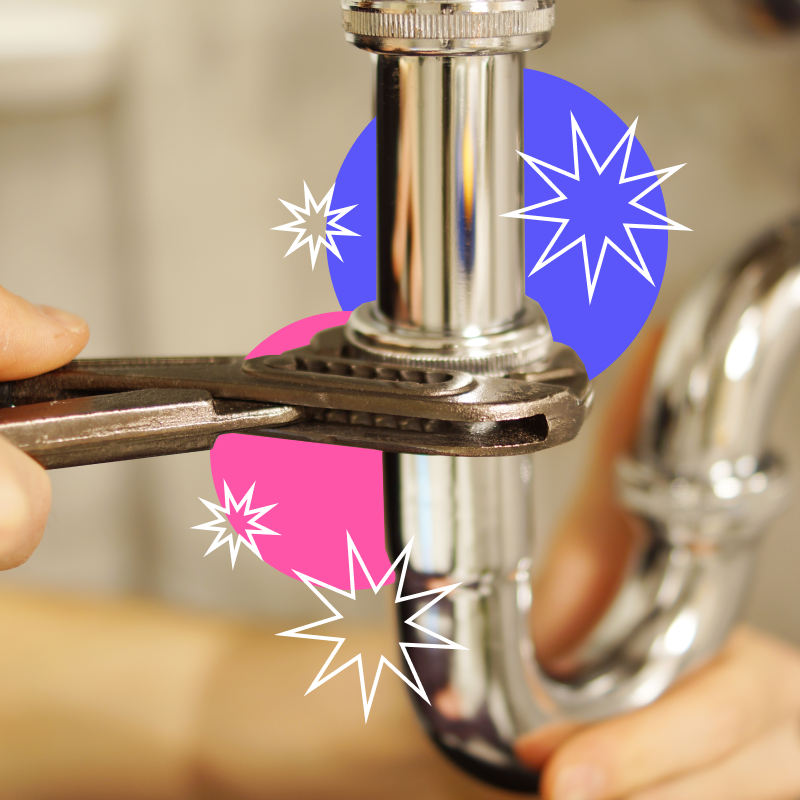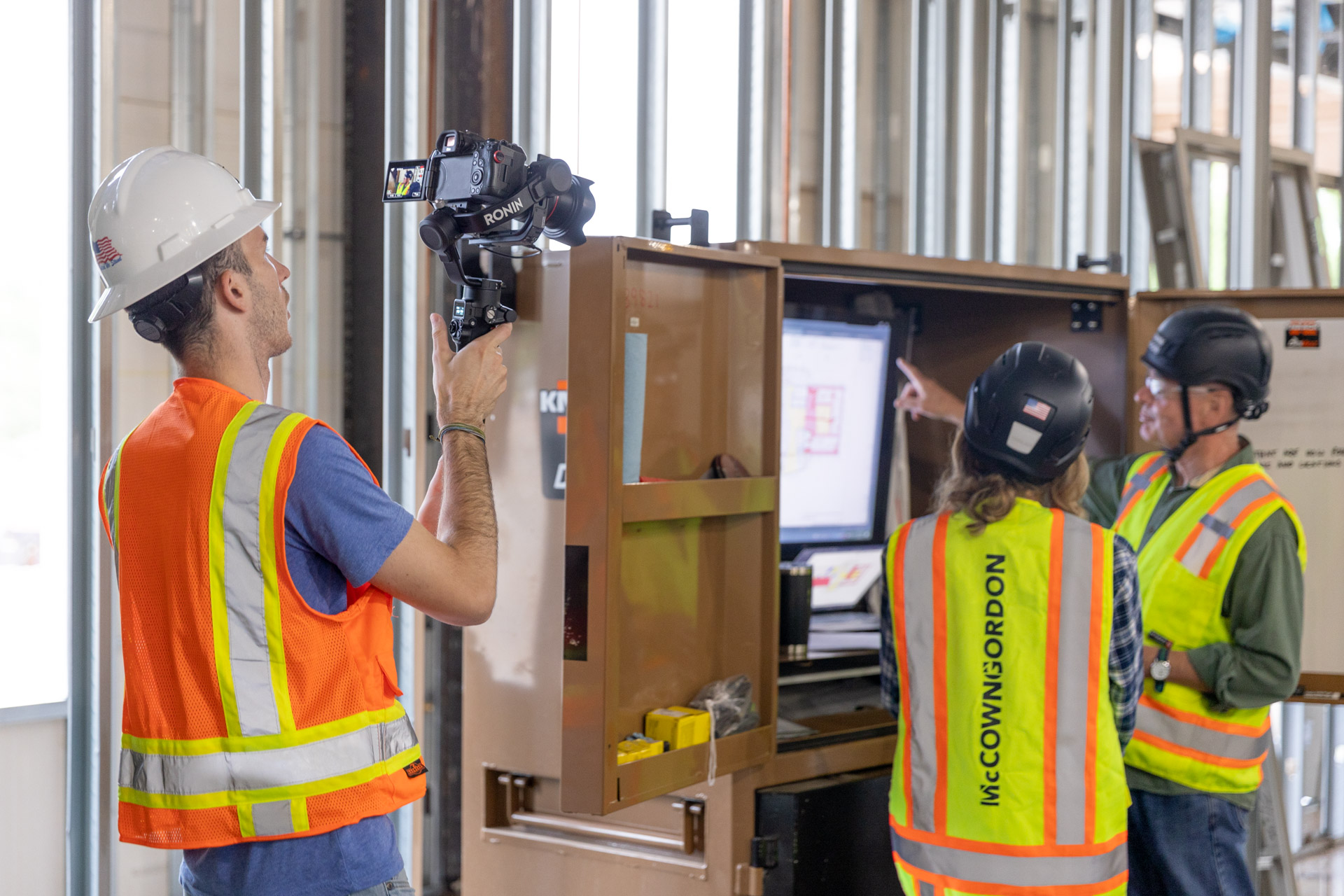Whether you’re B2B or B2C, your company needs the right tools, like CRMs, to track the ROI of your SEO, PPC, and other strategies using your CTR, customer LTV and other KPIs. Acronyms for days 🤓 Sure, it’s a bit obnoxious, but not untrue.
As a premier web design agency in Kansas City, Lifted Logic has to be fluent in the digital marketing alphabet. And also able to use it to build strategic marketing plans for businesses of all shapes, sizes, and industries.
We’re tackling two of the heavy hitters: Search Engine Optimization (SEO) and Pay Per Click (PPC) to demonstrate the similarities and differences between the strategies and how they work together to level-up your digital marketing.
J, K, L-M-N-SEO
To keep it simple, search engine optimization is a way to increase your web traffic through organic search results. Based on that definition, there is one clear goal: increasing web traffic.
But the key is it needs to be a balance between quality and quantity. You could attract all the users in the world, but if they aren’t the users you need, then it’s a waste.

Say you’re opening a vegan bakery and want to attract new customers. If we’re all being honest, we know there are plenty of people with a sweet tooth who would not be interested in an eggless cupcake. So if your SEO plan is focused solely on quantity of users, you might be successful in gaining lots of traffic, but that traffic will inevitably include the vegan-haters who bounce immediately upon arrival. That is low quality traffic you want to avoid.
The point of a well-planned SEO strategy is to not only increase traffic, but to increase the quality of your traffic. You want to effectively target people who are interested in your products or services, and exclude people who are not—because this is what converts traffic to leads and leads to sales.
This is just the tip of the iceberg. To dive in deep, use our ultimate guide to search engine optimization.
When to use SEO
Your website is your brand’s only sales representative that works 24 hours a day. If you have an online presence designed to attract customers and drive business (which you should), you need SEO that is written to convert users into customers.
Your SEO-powered website also acts as the strong foundation for the rest of your digital marketing. Every avenue you pursue, from email campaigns to publishing articles, should be driving traffic back to a website that is equipped with relevant content.
How to measure success with SEO
✨ Rank ✨
The first way to measure the success of your SEO efforts is rank. When people search for the places, services, topics, or industries you optimized for, where do you fall on the lineup? As an agency who works with clients of all shapes and sizes, this is the clearest way to demonstrate the effectiveness of your SEO work.
✨Traffic ✨
Another metric of success is traffic. The best way to track traffic and other user behaviors on your website is Google Analytics. Properly tracking site data like traffic allows you not only to provide insight on the effectiveness of your website, but gather comparative data to measure changes in success over time.
✨ Quality of Users ✨
Coming full circle, good SEO should improve your quality of users. More than just the number of people visiting your site, the number of conversions should proportionally increase. Quality users should spend more time, be more interactive, and ultimately take more action on your website.
✨ Domain Authority ✨
Strong, long-term SEO should also improve your website’s domain authority. Your domain authority is a value you can check through a program called Moz. It’s an estimated performance ranking based on the quality of your site and its content.
A, B, PPC
Pay per click, sometimes referred to as cost per click (CPC), refers to any digital paid advertising campaign that charges fees per click.
This model is especially popular through Google’s advertising platform: AdWords, although it’s used by many social media platforms as well.
Say you’re advertising for golf clubs in Kansas. Whenever someone in Kansas searches “golf clubs,” you want to be the first advertisement on the results page. If the user clicks on your ad, Google will charge you the amount that they bid for you to show up on the results page.
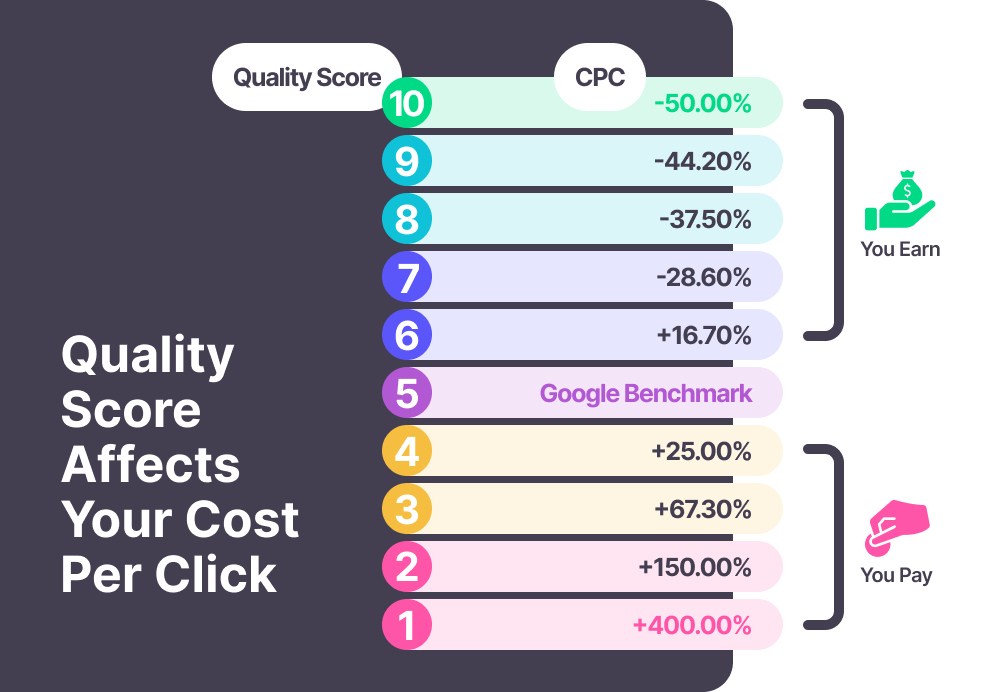
Without getting too in the weeds 🌱 every time there is a search, behind the scenes is a fully automated ad auction taking place. Search engines use the auction to determine the validity and relevance of the ads that rank on their results pages.
There are a number of best practices (like SKAGs, another acronym 🤓) to ensure that Google deems your ads valid and relevant enough to show up on the first page of results for the lowest possible bid, but the show doesn’t stop there. Step #2 is getting the user to convert after they click.
When to use PPC
Some like to think of SEO vs. PPC as simply long-term vs. short-term, but this is only a piece of pie. While PPC can have a much quicker results turnaround than SEO, it’s not immediate.
There is always an element of strategy and planning ahead, even with pay per click 🤯
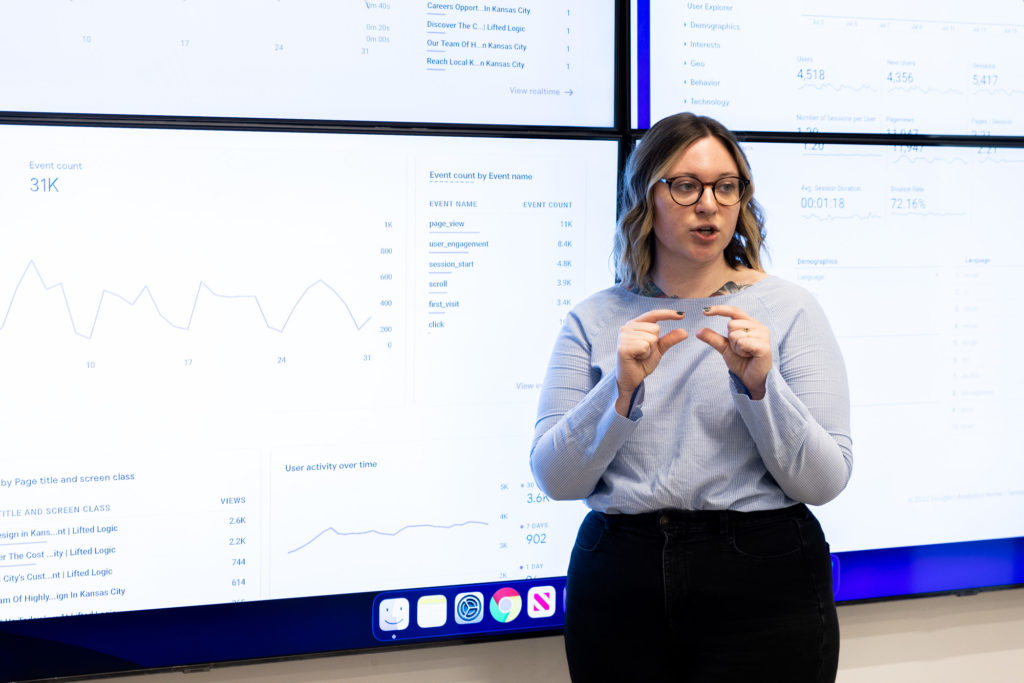
PPC can be an effective means to:
- Break into a new market
- Expand into a different geographic area
- Promote a new service
- Increase brand awareness
- Target a more niche audience
- Re-market to your website users
- And more
How to measure success with PPC
The primary metrics for measuring PPC campaign performance are impressions, clicks, conversions, and cost. Within the AdWords program, you can configure success data using these four main measurements.
Example: Click Through Rate (CTR) is impressions over clicks presented as a percentage.
As a digital agency focused on identifying bottlenecks, some of our best practices when it comes to PPC are centered around organizing data. Customizing your dashboard within the AdWords program to reflect the user pipeline can help you identify your most prominent “drop off” points.
So what defines success? As they say, it’s all relative. Well, not really, but relative to one thing in particular.
The cornerstone of your campaign data is your average cost per conversion. It can help you determine your budget needs, optimize your spend, and more. Depending on the industry, size, service, audience, and more, a successful cost per conversion is relative to the lifetime value of a single client.
SEO vs. PPC: the similarities
When you break down the similarities between SEO vs. PPC, it’s all about ensuring that you’re there when your customers are searching. Two of the tactics they share are:
- Matching search intent
- Serving appropriate content
Choosing the right keywords to optimize for with SEO, as well as the right keywords to buy for with PPC, involves matching the search intent as much as the search subject.

Example time. Searching “web design” and searching “web designer” might not seem too dissimilar, but what can just the tense tell us about the intent? Someone searching web design might be looking for a definition, training course, tools, or examples. Someone searching “web designer” is looking for a type of person: professionals or job listings.
Matching the intent of your target audience from the initial search could prevent you from bidding on clicks you don’t want or generating low quality organic traffic.
In the same effort, you want to serve your audience the most relevant content first. A good quality landing page matches search intent beyond the search results page and gives the user a clear next step.
SEO vs. PPC, the differences
The biggest difference when talking SEO vs. PPC is the timeline. While PPC results are not always immediate, the learning period for a Google Ads campaign is only about 7 to 10 days, and a mature campaign is 2 to 3 months old. It could take Google up to 6 weeks to fully index SEO content on a website and longer to attribute domain authority.
Another major difference has to do with cost. The cost of SEO work can vary widely depending on the professional you trust, the amount of time spent, and the amount of content created. Costs associated with PPC are much more transactional and budgets for campaigns can be adjusted over time.
In short, SEO is a long-term investment.
SEO vs. PPC, which one do I need?
In short, probably both. There is a time and place for both marketing mediums, so it’s less of a question of SEO vs. PPC and more of SEO 🤝 PPC. Game recognize game.
Think of your website like your favorite concert. SEO is the headliner. The breadwinner. What the people want. PPC is like the opening act. They’re great—you couldn’t have attracted as many people without them—but their true task is to warm up the crowd. PPC is the short-term solution to the long-term problem that strong SEO eliminates.
As much as we love a good analogy, this is mostly applicable to search ads. Display and video ads can easily have a more permanent place in your marketing plan and serve their own unique purpose, such as:
- Ongoing Brand Awareness
- Recruitment
- Ecommerce Sales
More about how the best digital marketing strategies include both PPC and SEO →
Ask for help or DIY?
If you’re debating whether or not to tackle your digital marketing DIY-style, the bottom line = bandwidth. Do you have the resources for ongoing management, training yourself or new staff, and dedicating team members to the effort?
If so, here’s a tip: set it and forget it! One of the top Google Ads mistakes novices make is constant changes that inhibit search engine learning, and this goes for both SEO and PPC. You want any adjustments to your strategy to be data driven, but that means giving it the time to collect the data in the first place.
Employ SEO and PPC strategies to help your business grow with Lifted Logic
If you’re ready to partner with a leading digital marketing agency to boost your online presence, contact us to get lifted 👽 When it comes to SEO vs. PPC, reach out to start the conversation, and we’ll help you with the rest. AFK for now.

